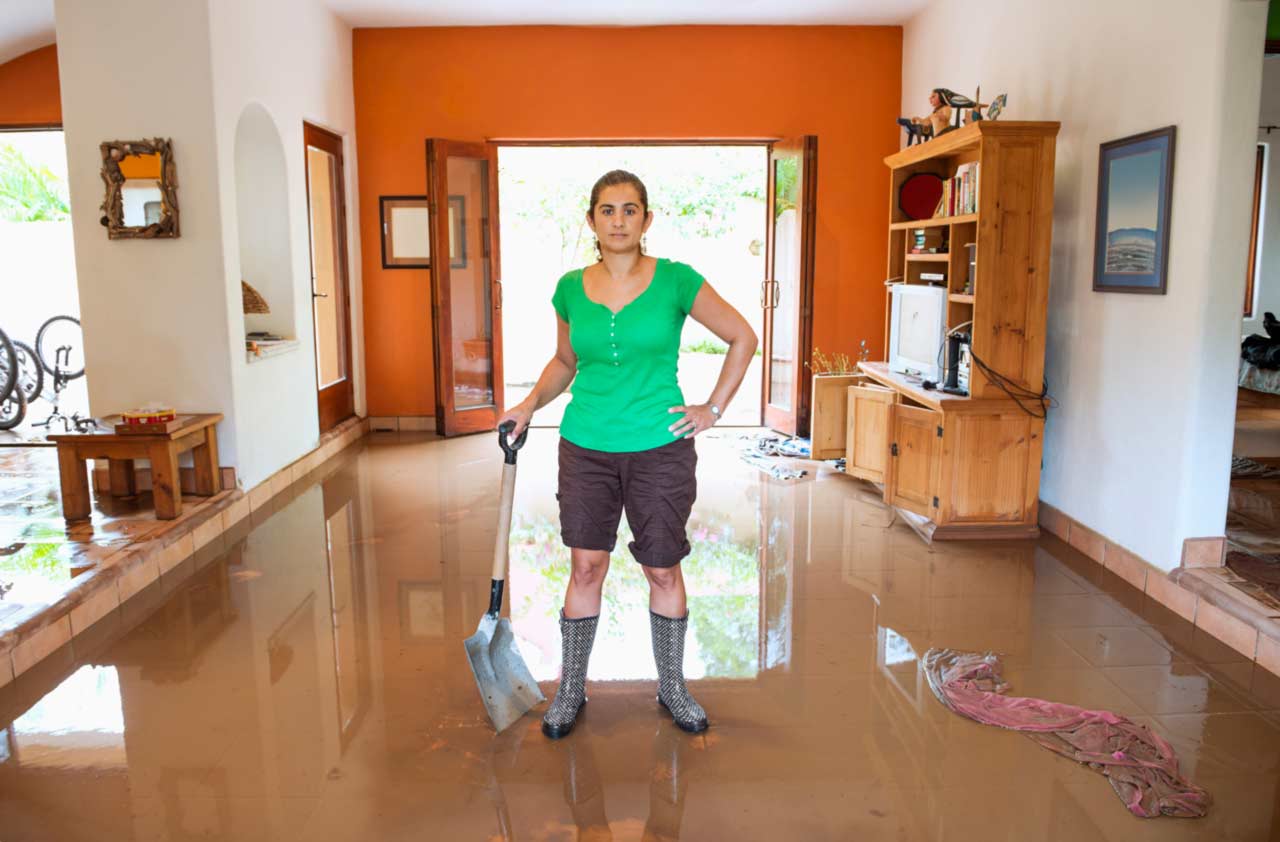Hurricanes Shed Light on Inadequate Insurance Coverage
Did you know that standard homeowner policies don’t cover flooding from heavy rains? And that people who don’t live in flood zones file water-damage claims about as often as those who do? It's time to check your coverage.


Profit and prosper with the best of Kiplinger's advice on investing, taxes, retirement, personal finance and much more. Delivered daily. Enter your email in the box and click Sign Me Up.
You are now subscribed
Your newsletter sign-up was successful
Want to add more newsletters?

Delivered daily
Kiplinger Today
Profit and prosper with the best of Kiplinger's advice on investing, taxes, retirement, personal finance and much more delivered daily. Smart money moves start here.

Sent five days a week
Kiplinger A Step Ahead
Get practical help to make better financial decisions in your everyday life, from spending to savings on top deals.

Delivered daily
Kiplinger Closing Bell
Get today's biggest financial and investing headlines delivered to your inbox every day the U.S. stock market is open.

Sent twice a week
Kiplinger Adviser Intel
Financial pros across the country share best practices and fresh tactics to preserve and grow your wealth.

Delivered weekly
Kiplinger Tax Tips
Trim your federal and state tax bills with practical tax-planning and tax-cutting strategies.

Sent twice a week
Kiplinger Retirement Tips
Your twice-a-week guide to planning and enjoying a financially secure and richly rewarding retirement

Sent bimonthly.
Kiplinger Adviser Angle
Insights for advisers, wealth managers and other financial professionals.

Sent twice a week
Kiplinger Investing Weekly
Your twice-a-week roundup of promising stocks, funds, companies and industries you should consider, ones you should avoid, and why.

Sent weekly for six weeks
Kiplinger Invest for Retirement
Your step-by-step six-part series on how to invest for retirement, from devising a successful strategy to exactly which investments to choose.
In light of the historic hurricanes that pummeled Texas and Florida this summer, there were some hard truths discovered about flooding and insurance.
According to the Insurance Information Institute, only 15% of the 1.6 million homes in Houston, as well as Harris Township where Houston is located, had flood insurance. In addition, only 28% of homes located in “high-risk” flood zones in Texas had flood insurance prior to the hurricanes.
Regarding the coastal counties in Florida, according to FEMA, 42% of homes have flood insurance.
From just $107.88 $24.99 for Kiplinger Personal Finance
Become a smarter, better informed investor. Subscribe from just $107.88 $24.99, plus get up to 4 Special Issues

Sign up for Kiplinger’s Free Newsletters
Profit and prosper with the best of expert advice on investing, taxes, retirement, personal finance and more - straight to your e-mail.
Profit and prosper with the best of expert advice - straight to your e-mail.
Standard homeowner insurance policies do not cover flooding from natural events such as heavy rains and hurricanes. Yet, alarmingly, a growing number of residents are reducing coverage or are not even purchasing adequate insurance even as instances of major flooding continue to break news regularly.
Unfortunately, lack of coverage or being underinsured causes considerable financial distress to millions of Americans every year. Major hurricanes are often reminders that we need to review our policies to ensure we are properly covered, but still many refuse to (or just can’t) bear the costs of protection or change their policies based on the value of their home and personal belongings.
Flood Insurance
Many homeowners do not think they need to purchase flood insurance if they do not live in a flood zone, however, there are proportionally the same number of claims made for flooding in flood zones as in non-flood zone locations. So, just because one lives in a non-typical flood area does not mean they shouldn’t consider coverage.
For example, in 2014, the Metro Detroit area got hit with 6 inches of rain in a matter of 12 hours, breaking records. Statistically speaking, rainfall amounts such as this occur only once every 500 years in Detroit. In the city of Warren, just north of Detroit, nearly 40% of the buildings saw some level of damage in the flooding of 2014, with the value exceeding $1 billion. Basement flooding is generally not covered in a typical homeowner’s policy, and those expecting relief had to wait at least one month for the governor to request federal disaster relief funds and over two years to receive government help.
It doesn’t take rainfall of historic proportions to flood a basement, and policies — especially for those in areas not prone to flooding — are not as expensive as one may think. The average price for a policy runs about $700 per year, depending on your location, according to consumer research site ValuePenguin. Although FEMA offers flood insurance coverage at an affordable rate, there are limits on the policies that often lead to inadequate coverage. Significant damage can easily exceed the $250,000 limit in residential building property coverage, for example.
Jewelry and Fine Art
Many homeowner policies cover lost, stolen or damaged jewelry or fine art. In this instance, it is imperative to take a closer look at the details and see how much is actually covered.
Policies have special limits on jewelry and/or fine arts, often set at $10,000. It doesn’t take more than a few pieces of nice jewelry to reach this maximum and, if your household contains jewelry or artwork collected over the course of 20 or 30 years, there simply may be no way to recover the costs with a basic insurance policy if something were to happen.
Umbrella
Umbrella insurance is designed to provide additional coverage above your underlying insurance policies. When it comes to general negligence, such as being at-fault for a car accident, umbrella insurance holds a lot of value. Best of all, it is not as pricey as you might suspect. (Use Kiplinger.com's free tool to quickly calculate how much umbrella insurance you need.)
For instance, if someone were to injure themselves on your property, they may file damages for $500,000; but your liability might only cover $250,000. Umbrella insurance covers the excess liability at a cost generally below what you would pay if you increased the liability on your policies.
Those who own rental properties, own a boat or simply want to keep their hard-earned assets from being lost in a lawsuit or to cover liability above a policy will find umbrella insurance a beneficial investment.
Another reason to consider an umbrella is if your teenager just acquired their driver’s license. Umbrella insurance will provide a high level of coverage for those most likely to be the cause of an accident.
Other insurance avenues to explore involve guaranteed replacement costs for home damage, wind insurance in hurricane-prone locations and water-backup insurance.
Insurance audits are great ways to see if your policies are providing the ideal level of coverage at the best rates. Taking a comprehensive look at your policies and other options in the market will ensure you are adequately covered for all of life’s accidents or catastrophes.
Profit and prosper with the best of Kiplinger's advice on investing, taxes, retirement, personal finance and much more. Delivered daily. Enter your email in the box and click Sign Me Up.

Ari Fischman is a Certified Financial Planner who has provided insurance, estate planning and financial solutions for affluent consumers. He is a Financial Adviser with Eagle Strategies LLC, a Registered Investment Adviser, and through Eagle Strategies, he has access to some institutional third-party wealth management firms that manage client assets. Fischman Insurance Group is not owned or operated by Eagle Strategies LLC.
-
 Betting on Super Bowl 2026? New IRS Tax Changes Could Cost You
Betting on Super Bowl 2026? New IRS Tax Changes Could Cost YouTaxable Income When Super Bowl LX hype fades, some fans may be surprised to learn that sports betting tax rules have shifted.
-
 How Much It Costs to Host a Super Bowl Party in 2026
How Much It Costs to Host a Super Bowl Party in 2026Hosting a Super Bowl party in 2026 could cost you. Here's a breakdown of food, drink and entertainment costs — plus ways to save.
-
 3 Reasons to Use a 5-Year CD As You Approach Retirement
3 Reasons to Use a 5-Year CD As You Approach RetirementA five-year CD can help you reach other milestones as you approach retirement.
-
 The 4 Estate Planning Documents Every High-Net-Worth Family Needs (Not Just a Will)
The 4 Estate Planning Documents Every High-Net-Worth Family Needs (Not Just a Will)The key to successful estate planning for HNW families isn't just drafting these four documents, but ensuring they're current and immediately accessible.
-
 Love and Legacy: What Couples Rarely Talk About (But Should)
Love and Legacy: What Couples Rarely Talk About (But Should)Couples who talk openly about finances, including estate planning, are more likely to head into retirement joyfully. How can you get the conversation going?
-
 How to Get the Fair Value for Your Shares When You Are in the Minority Vote on a Sale of Substantially All Corporate Assets
How to Get the Fair Value for Your Shares When You Are in the Minority Vote on a Sale of Substantially All Corporate AssetsWhen a sale of substantially all corporate assets is approved by majority vote, shareholders on the losing side of the vote should understand their rights.
-
 How to Add a Pet Trust to Your Estate Plan: Don't Leave Your Best Friend to Chance
How to Add a Pet Trust to Your Estate Plan: Don't Leave Your Best Friend to ChanceAdding a pet trust to your estate plan can ensure your pets are properly looked after when you're no longer able to care for them. This is how to go about it.
-
 Want to Avoid Leaving Chaos in Your Wake? Don't Leave Behind an Outdated Estate Plan
Want to Avoid Leaving Chaos in Your Wake? Don't Leave Behind an Outdated Estate PlanAn outdated or incomplete estate plan could cause confusion for those handling your affairs at a difficult time. This guide highlights what to update and when.
-
 I'm a Financial Adviser: This Is Why I Became an Advocate for Fee-Only Financial Advice
I'm a Financial Adviser: This Is Why I Became an Advocate for Fee-Only Financial AdviceCan financial advisers who earn commissions on product sales give clients the best advice? For one professional, changing track was the clear choice.
-
 I Met With 100-Plus Advisers to Develop This Road Map for Adopting AI
I Met With 100-Plus Advisers to Develop This Road Map for Adopting AIFor financial advisers eager to embrace AI but unsure where to start, this road map will help you integrate the right tools and safeguards into your work.
-
 The Referral Revolution: How to Grow Your Business With Trust
The Referral Revolution: How to Grow Your Business With TrustYou can attract ideal clients by focusing on value and leveraging your current relationships to create a referral-based practice.